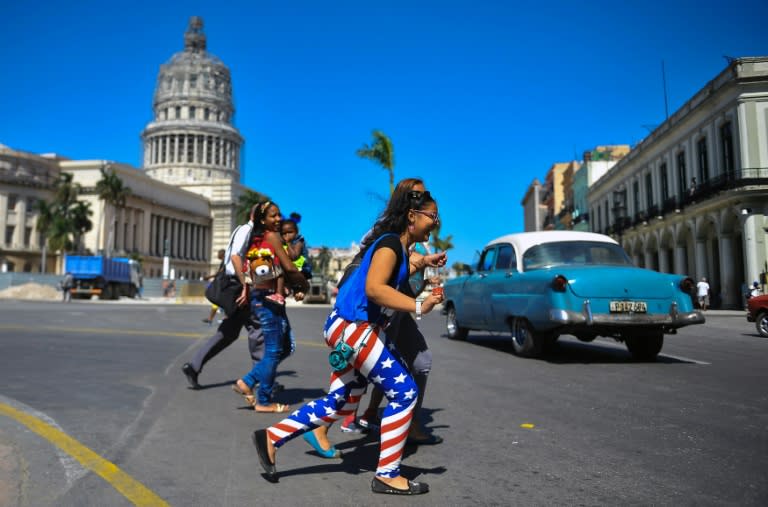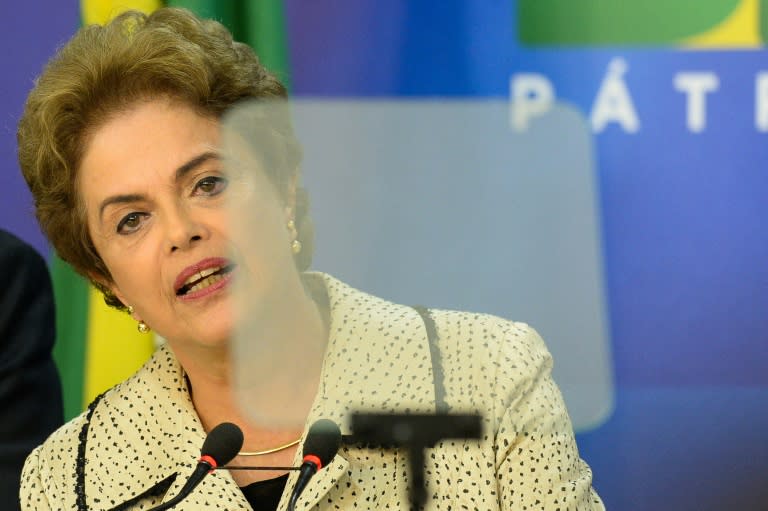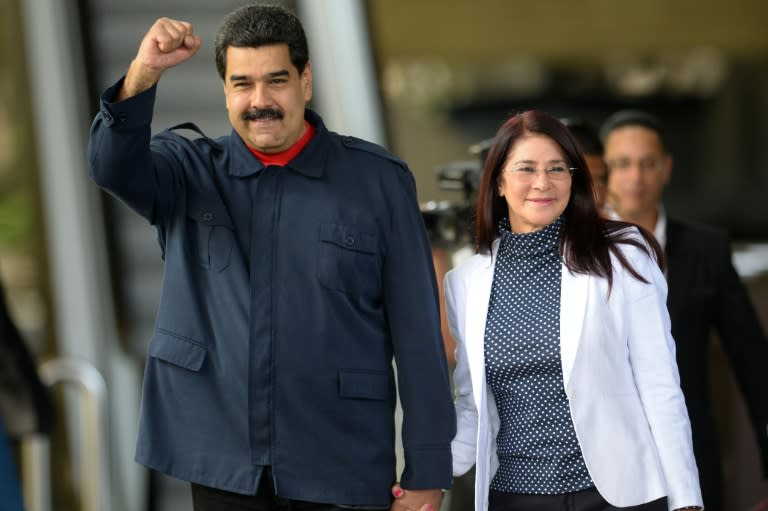Obama hopes Cuba trip can remake US image
Barack Obama will make history this month by becoming the first US president to visit Cuba in almost a century, but he also hopes to remake the United States' image in Latin America. When Obama sets foot in Havana on March 20, the White House imagines a "Berlin Wall moment" -- a singular legacy gilding event like Ronald Reagan's 1987 address before the Brandenburg Gate. Whereas Reagan sought to end the Cold War division of Europe, Obama hopes to symbolically "tear down" decades of Cold War antagonism across the narrow Florida Straits. But the visit is also the capstone of a much-stymied effort to improve relations with Latin America, ties still colored by past coups, death squads and heavy handed intervention. Barely 100 days after Obama took office, the new president told regional leaders at a Summit of the Americas in Trinidad that the United States had changed. The new approach, according to top Obama foreign policy advisor Ben Rhodes, was to offer equal partnerships and deny populist leaders like Hugo Chavez excuses for side-show anti-Americanism. "We tried to essentially remove the United States as source of legitimacy for that brand of politics," Rhodes told AFP in an interview. Viewed from Obama's White House, president George W. Bush and his invasion of Iraq had unhelpfully rekindled old stereotypes of "yanqui imperialism." "Bush was a good foil for them," Rhodes said. "He unintentionally played to type, with an aggressive American foreign policy and by embracing confrontation with Chavez." Under Obama, the rhetoric softened. He shook Chavez's hand, pointedly met Nicaraguan firebrand Daniel Ortega, visited the tomb of a popular Salvadoran priest killed by US-linked death squads and in Chile alluded to "mistakes" in a coup that installed dictator Augusto Pinochet. - First test - But within two months of the Caribbean summit, Obama faced a test of his policy when Honduras' leftist president Manuel Zelaya was overthrown in a coup. "The coup in Honduras in June 2009 was an interesting first test case for working in partnership," said Daniel Restrepo, who for six years was Obama's top advisor on the region. "The day after it happened, I was with the president in the Oval Office. He made it very clear that he viewed it as a coup. He made it very clear that it was unacceptable, but we also worked on resolving that in partnership." But then Obama decided he must respect the results of fresh elections, rather than reinstall Zelaya -- placing him in direct opposition to Brazil and others in the region. According to Michael Shifter, president of the Inter-American Dialogue, that "reinforced the sense among some Latin Americans that nothing had really changed, that the United States was still too accommodating to people who carried out coups." Further crises were to test the image that Obama tried to project. Revelations that the National Security Agency spied on Brazilian president Dilma Rousseff, prompted her to cancel a much-coveted state dinner. Rhodes admits that was a "low point" in relations with a pivotal ally. Later, Caracas seized on language in an executive sanctions order that called Venezuela a "national security threat" to make the case America had not changed. "You can cause far greater ripples than you intend to," Rhodes admitted, describing his effort to mend the misstep. "I went out and said that they are not a threat to the United States, that's just the language that our law requires accompanying any executive order related to sanctions," he said. - The Cuba gambit - While all this played out, Rhodes was secretly meeting Cuban officials in Canada. The talks eventually led to the restoration of diplomatic relations and the reopening of the US embassy in Havana. "The biggest thing we could possibly do to change the dynamic was to change our Cuba policy," Rhodes said. "We very much saw the Cuba opening as a means of trying to drain the toxic nature of the US role in left-wing Latin American politics." The full fruit of that policy -- Obama's visit to Cuba -- could hardly come at a better time for the White House. The region's political terrain is perhaps more favorable to Washington today than it has been in decades. Resource-rich anti-American governments in Argentina, Bolivia, Cuba, Ecuador and Venezuela have fallen or are struggling, thanks to what Restrepo calls a "commodity collapse and national mismanagement." Chavez died in 2013 and his successor, Nicolas Maduro, is struggling to pay for a vast program supplying leftist allies with cheap oil. "There is just not the same energy around anti-Americanism in Latin America" said Rhodes. "That makes it harder for some of these leaders to run the same playbook that was very comfortable in the past." At the same time peace seems within reach in Colombia -- allowing the US to shift away from controversial military assistance. Relations with Argentina are on the mend. After visiting Cuba, Obama will travel on to Buenos Aires, where a new government has sealed a debt deal with US hedge funds, allowing the country to return to the global financial system. The biggest challenge to Obama's strategy may now be at home. Republican opponents balk at Obama's willingness to engage with the likes of Cuba before there is progress on human rights or regime change. "We're not going to pick who runs Cuba," said Rhodes, arguing that economic opening will lead to more durable changes on the island. As Obama's term winds down, there is also concern about anti-Hispanic rhetoric coming from Donald Trump and other Republican candidates. "The language that diminishes the humanity or standing of Latin Americans plays in to the old narrative," said Rhodes.






